

Birds of a Feather
For Travel Writers with an Independent Spirit
Take this Quiz – Do You Have What It Takes to be a Travel Writer?

His quiz consists of thirteen YES or NO questions about important qualities travel writers need to be successful. After each question, Roy included why each item is important to help you analyze your strengths and weaknesses.
Do You Have What It Takes to be a Travel Writer?
Give yourself one point for every YES answer.
When you’ve completed the quiz, check the table below to see how you rate as a travel writer.
1. Are you prepared to read about and research your destination in advance?
This is important because so many travel writers don’t bother doing this crucial step. They don’t have any juicy facts and figures to include in their query letters so editors reject their ideas.
2. Are you prepared to actually write about your travels?
I’ve met so many wannabee travel writers who are in love with the romantic idea of sitting on a white sandy beach, in a hammock, under a palm tree, Mai Tai in hand, with their laptop. But when it comes to grinding out the words, they’re just not into it. (And have you ever tried working on a beach ? It’s miserable!)
3. Are you interested in exploring new places?
Seriously, I know travel writers who do not enjoy visiting new places because it puts them out of their comfort zone. Successful travel writers have an insatiable curiosity about other places and don’t freak out when things are “different”.
4. Can you dream up story angles about your destinations?
Editors expect your travel stories to have interesting themes and trending topics. They don’t want to see the same of stuff reheated and served up again. You need an active imagination to “see” new story angles .
5. Are you comfortable marketing yourself and selling your story ideas?
If you can’t sell your stories, you don’t get to write them. When you’re starting out, learning to sell your work is more important than writing.
6. Are you prepared to create query letters and send them out to multiple publications? Daily?
If you don’t send out queries, you won’t get published. The more queries you send out, the more stories you’ll sell.
7. Are you comfortable with wandering off course during your travels to open up new and exciting story ideas and opportunities?
Spontaneous wanderings are often the source of many great story ideas!
8. Do you enjoy meeting new people?
If you don’t enjoy meeting people , you’re definitely in the wrong business. It’s the people that make a place irresistible.
9. Can you stick to a consistent writing routine?
Consistency pays off with freelance writing. Ask any successful writer.
10. Can you see each writing project through from start to finish?
“Stickability” is crucial for success. All sorts of minor hurdles crop up in freelance writing and you need to persist. True journalists see every project through to the end.
11. Are your writing skills solid? Maybe not great, but do you at least have basic mastery of spelling, grammar, syntax, and creative writing?
Contrary to what many beginners believe, it is not the magazine editor’s job to fix your sub-standard writing. If you submit a poorly written article , it will be rejected or you’ll be asked to rewrite it.
You probably won’t get the chance to work with that editor again. Poor writing skills show through in your query letters, too. This explains why many novice travel writers never seem to break through into paying print media.
12. Do you have a camera that can take high-resolution images?
Offering a gallery of high-res images can often clinch the deal with an editor. Some editors won’t accept an article without photos.
13. Do you have the ability and means to travel several times each year?
Experts tell you to start out by writing about local attractions and destinations . This is a good plan, but after a while you’re going to tap out the available attractions and publications your locale has to offer.
An exception is if you’re fortunate enough to live in a major tourist destination like Paris, London, or New York, or some other place with unlimited potential for travel stories.
How did you do?
1-3 yes answers. don’t give up your day job just yet. you need a plan to focus on travel writing if that’s really what you want to do., 4-7 yes answers. you’re showing promise. what can you work on to improve, 8-13 yes answers. you’ve got the right stuff keep on pitching.
If you’re looking to improve your travel writing techniques, check out my A-Z of Travel Writing Tips here on Birds of a Feather Press.
Roy is also launching a new year long coaching program on October 1st – check out the details here. If you’re looking for motivation to get your travel writing career kick-started, this could be just the opportunity you’re looking for.
We’ve also featured Roy in our Author Interview series which showcases travel bloggers and writers who’ve written books.

Author: Jay Artale
1 thought on “ take this quiz – do you have what it takes to be a travel writer ”.
Leave a Reply Cancel reply
Your email address will not be published. Required fields are marked *
Notify me of follow-up comments by email.
Notify me of new posts by email.

I abandoned my corporate career to become a digital nomad and full-time writer, and now run Birds of a Feather Press to help other writers become authors. I also write about my travels on my personal blog Roving Jay: Nomadic Adventures in Wonderland – without the rose-tinted glasses
Grab this month’s Free Download

Listen to our Podcast

Featured In

Romancing the Genres
- Author Interviews (73)
- Author Resources (28)
- Book Design (44)
- Book Marketing & Promotion (52)
- Book Production (48)
- Book Reviews (1)
- Guest Blogging Tips (7)
- Travel Blog Advice (4)
- Podcast: How Travel Writers Self-Publish (42)
- Self-Publishing Advice (98)
- The Nomadic Times (30)
- Uncategorized (9)
- A-Z Travel Writing Tips (13)
- Writing Tools (38)
Recent Articles
- 10 Amazing Trends For Book Cover Design
- Author Interview with traveloguer Kandy Ostrosky
- Free Self-Publishing Advice from Amazon KDP
- Back after Hiatus
- 5 Tips for Writing a Travel Journal to turn into a Book
Recommended Distributors

Explore our Book Series

Content Tags
Disclaimer:.
The information on this site is free for you to read, watch and listen to, but Birds of a Feather Press is also a business. Some of the links in this post are affiliate links. I receive a small percentage of the sales income if you decide to purchase through them, and this doesn’t cost you a penny. I only recommend products I use or people I trust. I blog with integrity, and only belong to affiliate programs I believe in.
Follow me on Twitter
Join us on Facebook
Latest From:: ROVING JAY
My favourite pedestrian street in conceicão.

How to show your support

Disclaimer: Some of the links on this website are affiliate links. If you use them to make a purchase I will earn a commission (with no cost to you). I blog with integrity and only vouch for products and businesses I support and believe in.
- Write For Us
- Author Services
- Freewriting Downloads
- Write Your Travel Guide Downloads
Design by ThemesDNA.com
- Roy's Story
- Travel Writing Workshops in 2023
- *ONLINE* Travel Writing & Marketing Master Class
- Group Coaching 2022
- Coaching and Mentoring Services
- Consulting Services for Travel Writers
- eBooks, Manuals, Resource Guides
- The Pitching Process
- Getting Published
- Find Your Niche
- Dreaming Up Story Ideas
- Query Letters
- Why You Need a Coach
- All About Press Trips
- Travel Planning
- Travel Shows
- Travel Photography
- Travel Gear
- Travel Accessories
- Travel Writing Craft
- The Business of Writing
- Social Media, Blogs & Websites
- Travel Writing Courses
- Travel Blogs
- FAQs - Working with Editors
- Reader Testimonials
- Articles About Freelance Writing
- Book Reviews
- eZine Sign-up
- PitchTravelWrite Blog
- Travel Writing Quiz
Travel Writing Quiz Marketing Dilemmas and Strategies
By Roy Stevenson
Here's a travel writing quiz which I think you’ll find to be a lot of fun.
You like quizzes, don’t you? I promise, you'll love this one. It’s a multiple choice quiz so I made it easy for you. It’s all about travel writing sales and marketing dilemmas you will face sometime during your career. Each question involves some aspect of selling and marketing your story ideas to editors. These situations have actually happened to me, and they happen to the writers I coach. So, it’s very likely they'll happen to you, too.
Travel Writing Quiz Instructions:
1) Read each situation and then review the alternative courses of action. It’s your job to decide what you would most likely choose to do in the same situation.
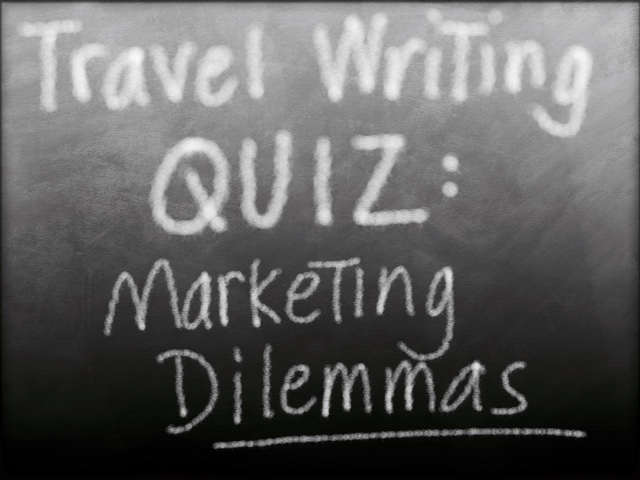
2) More than one solution may be correct. 3) Decide on your answer before you read my strategies.
4) There's no grade for this travel writing quiz! Just some advice and strategies I use that will help you. At the end of each situation I tell you my strategy, and then explain my rationale for taking that particular action. These strategies have worked well for me and are important ways to get published more often. Some of my suggested solutions will surprise you, but you’ll learn some handy techniques to help you sell more stories.
Travel Writing Quiz Question #1
You sent out simultaneous queries to ten different magazines two months ago. You haven’t heard back from any magazine editors. You decide it’s time to … (a) Contact the editors of the ten magazines that you pitched to ask if they’ve had a chance to review your pitch. (b) Send out ten more queries to different magazines. (c) Bag it — this story is a dog and you’re never going to sell it. My Travel Writing Strategy #1: I like to send simultaneous queries out to at least 20-25 magazines. In this case, for some reason I only sent out ten, so I would not hesitate to send out ten more. My strategy is (b). If I don’t get a response after the second round of queries, I would place the story in a back burner file and revisit it later. Sometimes the timing isn’t right for a story idea, and an opportunity presents itself later.
Travel Writing Quiz Question #2
You’ve just sent out simultaneous query letters to twenty magazines, pitching the same travel story. The next day, two magazine editors respond within an hour of each other, indicating they 'd really like your story for their (non-competing) magazines in different countries. Their magazine circulations do not overlap. One editor is offering to pay you considerably more than the other magazine. Neither magazine issues contracts for articles. Do you . . . (a) Try and get the lower paying editor to raise his offer, then play the magazine editors off against each other. (b) Wait another 24-48 hours before taking any action, in case there is a 3rd magazine that is interested in the story. (c) Sell the story to the first editor and decline the second editor’s offer. (d) Sell your story to the highest paying editor, and offer the second editor another completely different story. (e) Sell the exact same story to both magazines. My Travel Writing Strategy #2: Because the magazines are non-competing and have non-overlapping circulations, I would not hesitate to sell the exact same story to both magazines. I once sold a story about summer skin health simultaneously to a tennis, running, and golf magazine without any problems. My strategy is (e). I sometimes like to wait a day or two to find out if anyone else is interested in the story. My strategy for multiple acceptances might be affected when there are more than two editors interested, so I also use strategy (b) so I can make better decisions. If you are uncomfortable about selling the same story to different magazines, even if they are non-competing, then strategies (c), and (d) are also viable options.
Travel Writing Quiz Question #3
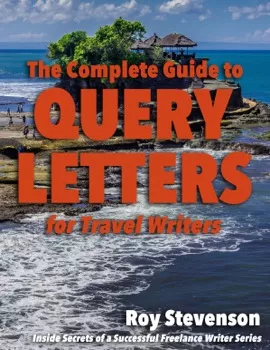
You’ve just written an excellent, enticing query letter for an exciting travel story that you know will sell. You’re in the process of selecting magazines to pitch and have a list of five publications that you think would be a perfect fit for your story.
What’s your next step? (a) You stop your search for more magazines and send your query letter out to those five. (b) You continue to search for magazines until you’ve found every potential magazine that you think is a good fit, and then pitch the whole lot. (c) You continue to search for magazines until you’ve found every magazine that you think would be a good fit, and then pitch half of them. You can always pitch the remainder if you strike out with your first batch of queries My Travel Writing Strategy: I always pitch every magazine on my list, if I believe my article would be a good fit for them. Selling your articles to magazines is a numbers game. The more magazines you pitch, the more articles you’ll get published. My strategy is (b). Selective pitching, or just choosing a few likely candidates for your story, usually ends in disappointment and wastes your time. Pitch many magazines.
Travel Writing Quiz Question #4
You have two travel story ideas that you think are exciting and should sell easily. How do you go about pitching these stories? You plan to …
(a) Write up one query letter that details both story ideas and then send the query out to every appropriate magazine you can find. (b) Send out each of the two story ideas in separate query letters to every appropriate magazine you can find. (c) Send a query for one of the stories to every magazine, and wait to hear back from each of the magazines before you pitch them your second story idea story My Travel Writing Strategy #4: Don’t hesitate to send two—or even three—story ideas out in the same query letter. This practice is called multiple submissions and it significantly increases your chances of getting at least one of your story ideas published. My strategy is (a). But, a word of caution is important here. Do not send out more than three story ideas in a query letter unless you really know the editor well. Pitching multiple story ideas can be overwhelming to editors, and you want to limit your pitch to only two or three. If you know an editor well and work with her regularly, then you might be able to break this rule. It really depends upon the editor and what they’re willing to accept. (Here's an article about pitching multiple story ideas and what editors say about it.)
Travel Writing Quiz Question #5
You just completed an assigned article for a magazine editor and are ready to send it in. What do you do next? (a) Send your story to the editor, wait a week, and then pitch your next story idea. (b) Send your story to the editor, wait a month, and then pitch your next story idea . (c) Dream up another story idea and pitch it when you send in your story. My Travel Writing Strategy #5:

I pitch new story ideas almost every time I send in my assignments, and have a high acceptance rate with this technique. My new story ideas are accepted for publication about 55% of the time, so my strategy is (c). This is an easy way to get more work with very little effort. You have your editor’s attention because you’re submitting your assigned article.
It’s a no-brainer - just do it!
Hope you enjoyed this travel writing quiz - how did you do? Below are more free articles that will help you sell more stories.
Related articles that will interest you:
Simultaneous Submissions: Sell More and Do It Faster Simultaneous Submissions: Strategies for Multiple Acceptances Query Multiple Story Ideas and Multiply Your Sales Getting Published: The Many Ways to Sell Your Articles
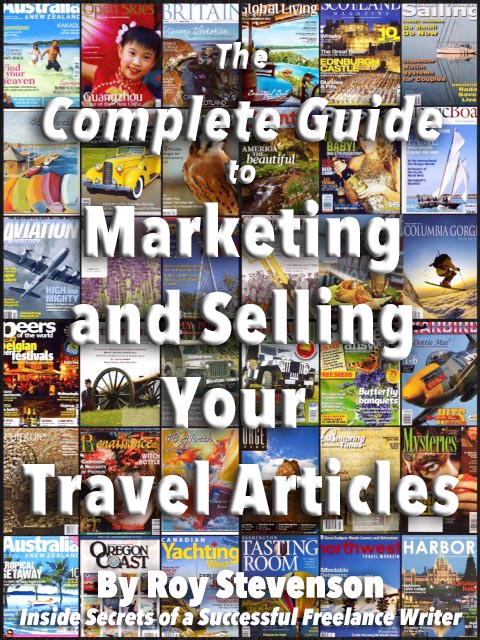
Do you want to learn about travel writing sales and marketing techniques that work?
This manual has every tool and technique that I use to pitch and sell - and then resell - my travel stories. I hold nothing back. Reading this manual is like looking inside my marketing brain.
Learn more ...

Roy Stevenson is a professional travel writer and the author of www.PitchTravelWrite.com. Over the past ten years, he’s had more than 1000 articles published in 200 magazines, trade and specialty journals, in-flights, on-boards, blogs and websites and has traveled on assignment around the U.S. and to dozens of international destinations.
IF YOU ENJOYED THIS POST, GET UPDATES. IT'S FREE.

Recent Articles
Breaking into Regional Magazines for Freelance Writers
Mar 11, 24 03:40 PM
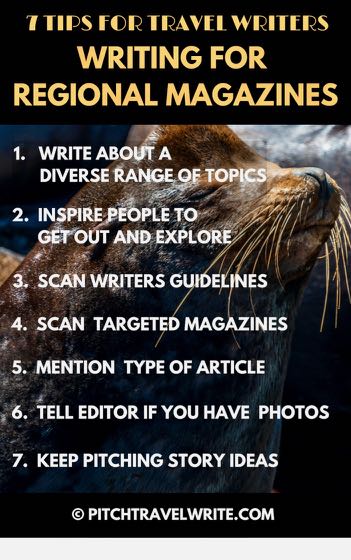
Your Professional Website: Why Freelance Writers Need One
Feb 12, 24 02:06 PM

Guided Tours - What's Good About Them?
Jan 15, 24 02:31 PM
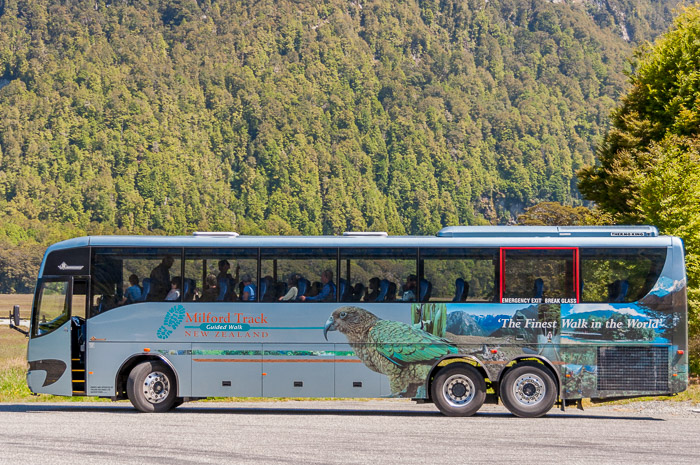
Books and Services
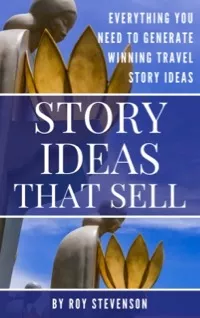

- Sign Up for Free Sign Up
Understanding the conventions of travel writing
Description.
- gcse english
- travel writing
- writing convention
- edexcel english language
- gcse english 2016 onwards
- literary non-fiction

Resource summary
- Guide books
- Travel diaries
- Nature journals
- Some forms of autobiography
- Adventure and exploration literature
- Transcipts of speeches
- A serialised novel
- An epic poem
- Often has a clear plot as in a novel or short story.
- Narratives are often non-linear and include the writer’s memories and/or reflections.
- Combines literary and documentary features
- Figurative devices used to allow the reader to experience the people and places described.
- Draws generalised, universal conclusions from particular, individualised experiences.
- Is always funny
- Tries to persuade the reader to visit the people and places described themselves
- Presents stereotypes of nations and nationalities.
- How anyone came up with the idea of turning sand into glass
- How the Egyptians built the pyramids
- Why people the world over enjoy visiting beaches
- What makes up sand
- Why sand exists at all
- Personified as possessing power
- Metaphor for power
- Active verbs develop personification
- Passive verbs develop personification
- Simile emphasises determination
- Metaphor emphasises deterioration
- Hyperbole for comic effect
- Understatement for comic effect
- Three-part list for emphasis
- Three-part list to exaggerate
- Semantic field of magical trickery
- Semantic field of awed wonder
- Comic exaggeration
- Comic understatement
- Simple sentence for impact
- Compound sentence for impact
- Personification suggests joy
- Personification suggests childishness
- Simile is comforting
- Simile is invigorating
- Personification conveys beauty
- Personification conveys dominance
- Metaphor connotes pleasure
- Simile connotes pleasure
- Personification connotes more joy
- Personification connotes end of joy
- He is modest about his own intelligence
- He take a humourous approach to life
- He can laugh at himself
- He enjoys the great outdoors
- He is a grumpy old man
- He is American
- He is a well-known writer
Want to create your own Quizzes for free with GoConqr? Learn more .
Browse Course Material
Course info.
- Prof. Mary Fuller
Departments
As taught in.
- International Literature
- Nonfiction Prose
Learning Resource Types
World literatures: travel writing.
Quiz Questions ( PDF )
Quiz Answers ( PDF )

You are leaving MIT OpenCourseWare
What You Should Know About Travel Writing
- An Introduction to Punctuation
- Ph.D., Rhetoric and English, University of Georgia
- M.A., Modern English and American Literature, University of Leicester
- B.A., English, State University of New York
Travel writing is a form of creative nonfiction in which the narrator's encounters with foreign places serve as the dominant subject. Also called travel literature .
"All travel writing—because it is writing—is made in the sense of being constructed, says Peter Hulme, "but travel writing cannot be made up without losing its designation" (quoted by Tim Youngs in The Cambridge Introduction to Travel Writing , 2013).
Notable contemporary travel writers in English include Paul Theroux, Susan Orlean, Bill Bryson , Pico Iyer, Rory MacLean, Mary Morris, Dennison Berwick, Jan Morris, Tony Horwitz, Jeffrey Tayler, and Tom Miller, among countless others.
Examples of Travel Writing
- "By the Railway Side" by Alice Meynell
- Lists and Anaphora in Bill Bryson's "Neither Here Nor There"
- Lists in William Least Heat-Moon's Place Description
- "London From a Distance" by Ford Madox Ford
- "Niagara Falls" by Rupert Brooke
- "Nights in London" by Thomas Burke
- "Of Trave," by Francis Bacon
- "Of Travel" by Owen Felltham
- "Rochester" by Nathaniel Hawthorne
Observations About Travel Writing
Authors, journalists, and others have attempted to describe travel writing, which is more difficult to do than you might think. However, these excerpts explain that travel writing—at a minimum—requires a sense of curiosity, awareness, and fun.
Thomas Swick
- "The best writers in the field [of travel writing] bring to it an indefatigable curiosity, a fierce intelligence that enables them to interpret, and a generous heart that allows them to connect. Without resorting to invention , they make ample use of their imaginations. . . . "The travel book itself has a similar grab bag quality. It incorporates the characters and plot line of a novel, the descriptive power of poetry, the substance of a history lesson, the discursiveness of an essay , and the—often inadvertent—self-revelation of a memoir . It revels in the particular while occasionally illuminating the universal. It colors and shapes and fills in gaps. Because it results from displacement, it is frequently funny. It takes readers for a spin (and shows them, usually, how lucky they are). It humanizes the alien. More often than not it celebrates the unsung. It uncovers truths that are stranger than fiction. It gives eyewitness proof of life’s infinite possibilities." ("Not a Tourist." The Wilson Quarterly , Winter 2010)
Casey Blanton
- "There exists at the center of travel books like [Graham] Greene's Journey Without Maps or [V.S.] Naipaul's An Area of Darkness a mediating consciousness that monitors the journey, judges, thinks, confesses, changes, and even grows. This narrator , so central to what we have come to expect in modern travel writing , is a relatively new ingredient in travel literature, but it is one that irrevocably changed the genre . . . . "Freed from strictly chronological , fact-driven narratives , nearly all contemporary travel writers include their own dreams and memories of childhood as well as chunks of historical data and synopses of other travel books. Self reflexivity and instability, both as theme and style , offer the writer a way to show the effects of his or her own presence in a foreign country and to expose the arbitrariness of truth and the absence of norms." ( Travel Writing: The Self and the World . Routledge, 2002)
Frances Mayes
- "Some travel writers can become serious to the point of lapsing into good ol' American puritanism. . . . What nonsense! I have traveled much in Concord. Good travel writing can be as much about having a good time as about eating grubs and chasing drug lords. . . . [T]ravel is for learning, for fun, for escape, for personal quests, for challenge, for exploration, for opening the imagination to other lives and languages." (Introduction to The Best American Travel Writing 2002 . Houghton, 2002)
Travel Writers on Travel Writing
In the past, travel writing was considered to be nothing more than the detailing of specific routes to various destinations. Today, however, travel writing has become much more. Read on to find out what famous travel writers such as V.S. Naipaul and Paul Theroux say about the profession.
V.S. Naipaul
- "My books have to be called ' travel writing ,' but that can be misleading because in the old days travel writing was essentially done by men describing the routes they were taking. . . . What I do is quite different. I travel on a theme . I travel to make an inquiry. I am not a journalist. I am taking with me the gifts of sympathy, observation, and curiosity that I developed as an imaginative writer. The books I write now, these inquiries, are really constructed narratives." (Interview with Ahmed Rashid, "Death of the Novel." The Observer , Feb. 25, 1996)
Paul Theroux
- - "Most travel narratives—perhaps all of them, the classics anyway—describe the miseries and splendors of going from one remote place to another. The quest, the getting there, the difficulty of the road is the story; the journey, not the arrival, matters, and most of the time the traveler—the traveler’s mood, especially—is the subject of the whole business. I have made a career out of this sort of slogging and self-portraiture, travel writing as diffused autobiography ; and so have many others in the old, laborious look-at-me way that informs travel writing ." (Paul Theroux, "The Soul of the South." Smithsonian Magazine , July-August 2014) - "Most visitors to coastal Maine know it in the summer. In the nature of visitation, people show up in the season. The snow and ice are a bleak memory now on the long warm days of early summer, but it seems to me that to understand a place best, the visitor needs to see figures in a landscape in all seasons. Maine is a joy in the summer. But the soul of Maine is more apparent in the winter. You see that the population is actually quite small, the roads are empty, some of the restaurants are closed, the houses of the summer people are dark, their driveways unplowed. But Maine out of season is unmistakably a great destination: hospitable, good-humored, plenty of elbow room, short days, dark nights of crackling ice crystals. "Winter is a season of recovery and preparation. Boats are repaired, traps fixed, nets mended. “I need the winter to rest my body,” my friend the lobsterman told me, speaking of how he suspended his lobstering in December and did not resume until April. . . ." ("The Wicked Coast." The Atlantic , June 2011)
Susan Orlean
- - "To be honest, I view all stories as journeys. Journeys are the essential text of the human experience—the journey from birth to death, from innocence to wisdom, from ignorance to knowledge, from where we start to where we end. There is almost no piece of important writing—the Bible, the Odyssey , Chaucer, Ulysses —that isn't explicitly or implicitly the story of a journey. Even when I don't actually go anywhere for a particular story, the way I report is to immerse myself in something I usually know very little about, and what I experience is the journey toward a grasp of what I've seen." (Susan Orlean, Introduction to My Kind of Place: Travel Stories from a Woman Who's Been Everywhere . Random House, 2004) - "When I went to Scotland for a friend's wedding last summer, I didn't plan on firing a gun. Getting into a fistfight, maybe; hurling insults about badly dressed bridesmaids, of course; but I didn't expect to shoot or get shot at. The wedding was taking place in a medieval castle in a speck of a village called Biggar. There was not a lot to do in Biggar, but the caretaker of the castle had skeet-shooting gear, and the male guests announced that before the rehearsal dinner they were going to give it a go. The women were advised to knit or shop or something. I don't know if any of us women actually wanted to join them, but we didn't want to be left out, so we insisted on coming along. . . ." (Opening paragraph of "Shooting Party." The New Yorker , September 29, 1999)
Jonathan Raban
- - "As a literary form, travel writing is a notoriously raffish open house where different genres are likely to end up in the bed. It accommodates the private diary , the essay , the short story, the prose poem, the rough note and polished table talk with indiscriminate hospitality. It freely mixes narrative and discursive writing." ( For Love & Money: Writing - Reading - Travelling 1968-1987 . Picador, 1988)
- - "Travel in its purest form requires no certain destination, no fixed itinerary, no advance reservation and no return ticket, for you are trying to launch yourself onto the haphazard drift of things, and put yourself in the way of whatever changes the journey may throw up. It's when you miss the one flight of the week, when the expected friend fails to show, when the pre-booked hotel reveals itself as a collection of steel joists stuck into a ravaged hillside, when a stranger asks you to share the cost of a hired car to a town whose name you've never heard, that you begin to travel in earnest." ("Why Travel?" Driving Home: An American Journey . Pantheon, 2011)
- Defining Nonfiction Writing
- Creative Nonfiction
- Point of View in Grammar and Composition
- 11 Things You Should Know About Trees
- What Are the Different Types and Characteristics of Essays?
- Examples of Images in Poetry, Fiction, and Nonfiction
- Description in Rhetoric and Composition
- A Guide to All Types of Narration, With Examples
- What Is Prose?
- 100 Major Works of Modern Creative Nonfiction
- Writing the Parts of a Stage Play Script
- Great Summer Creative Writing Programs for High School Students
- Our Four Seasons: Winter, Spring, Summer, Autumn
- The Four Seasons in Spanish
- Architecture Basics - Learn What's What and Who's Who
- Random Quiz
- Search Sporcle
Travel Writing by Quote
Can you pick the travel writing by quote, quiz scoreboard challenge, recently published.

More to Explore
Quiz from the vault, featured blog post.

You Might Also Like...
Today's top quizzes in literature, browse literature, today's top quizzes in book, browse book, trending topics, more by: caiusthetall, go to creator's profile, your account isn't verified, report this user.
Report this user for behavior that violates our Community Guidelines .
How to write a travel article
Part of English Non-fiction writing
Did you know?
The first examples of travel writing came from Ancient Greece, with writers such as Pausanias who started describing his many journeys around AD 150. Later, during the Middle Ages, travel writing became popular in Arabic and Chinese civilisations as well as in Europe.
Introduction to travel articles
Key learning points:.
- What is travel writing?
- What it’s used for and who it is written for.
- How to write a successful travel article using the techniques and conventions of effective travel writers.
What is a travel article?
Travel writing can be defined as writing that describes places, peoples and cultures.
Types of travel writing literature include:
- Adventure travel – travel that includes descriptions of memorable experiences, daring expeditions, long arduous journeys, and other adventurous or exciting events.
- Travel guides – factual information on places, people, culture, customs, languages and history, with recommendations and guidance provided to inspire and inform other travellers.
- Travelogues – personal experiences of travelling, with descriptions of places, customs and people. Travelogues are often written by authors during their travels.
- Promotional travel writing – marketing and advertising of places, resorts, activities, events and services, intended to sell holidays or inspire travel to particular locations.
Travel articles can be found in many daily newspapers and popular magazines, in specialist travel publications, or online in blogs and on websites.
Purpose and audience
A travel article’s purpose is primarily to provide information to readers. This can come in the form of researched facts or a description of the writer’s own experiences.
Travel articles are often designed to entertain and so use anecdotes, vivid descriptions and interesting, unusual or impressive facts.
Travel writers think carefully about their target audience.
- A travel review written for readers of a pensioner's magazine would consider their interests and capabilities, perhaps focussing more on visits to art galleries and other cultural attractions, rather than family theme parks.
- A travel website aimed at families with young children would contain information detailing if there was childcare available at a resort, if there were activities suitable for children, or if the nearby beach was safe for swimming.
Conventions of travel writing
Travel writing can inspire others to explore, to experience new things and appreciate different cultures. Travel writing has its own conventions :
- often written in the first-person, using ‘I’
- tells the story in the past tense
- relatable and conversational in tone
- contains sensory details (tastes, smells, sounds, sights)
- provides useful tips, facts or insights
Here is the opening to a travel article about Victoria Falls, located on the border between Zambia and Zimbabwe. The article is designed to both inform and entertain.
As I walked along the summit of Victoria Falls, through an unexpected lush rainforest, towards the deafening ferocious downpour of the Zambezi River, anticipation coursed through me. Clothes, shoes, hair, skin, every stick, stone, plant, animal, the air itself was soaking wet. At the mouth of the gargantuan 108 metre (354 ft) drop, was an awe-inspiring view of water clouds and a gorge.
In the above extract several travel writing conventions are used:
- Sensory imagery – ‘deafening’ sound, feeling ‘soaking wet’.
- The description of the writer’s emotions – ‘anticipation coursed’ and ‘an awe-inspiring view’.
- Dramatic language – ‘gargantuan’ (meaning massive).
- Facts – ‘108m (354 ft) drop’.
Structural conventions
This is how to structure a travel article:
- Start with a headline , for example:
Victoria Falls: a majestic sight.
- Follow with a standfirst – a sentence that summarises what the article will be about, for example:
A natural wonder of the world for both adrenaline junkies and those who prefer more relaxed activities.
Use the opening paragraph to hook the reader. Many travel articles start in the middle of the action – for example, here you could be in the middle of bungee-jumping from Victoria Falls bridge. Then use the next paragraph to explain how you got there.
Use the following paragraphs to build more description. They should include both the adventurous activities and relaxing ones to match the standfirst you used at the beginning. It is important to signpost what you are writing so the reader can keep track of what is happening. For example:
The next day I decided to head for calmer conditions, in contrast, my daring family headed for the helicopter.
- In the final paragraph , end with a reflection or summary of your experience.
Test your knowledge
Secondary games. game Secondary games
Have fun playing science, maths, history, geography and language games

More on Non-fiction writing
Find out more by working through a topic
How to write a newspaper report
- count 5 of 10
Writing autobiography
- count 6 of 10
Formal v informal writing
- count 7 of 10
How to build an argument
- count 8 of 10
Have an account?
Suggestions for you See more

Commands on Board
Professional development , simple past tense, suggestions, invitations, offers, and re..., 11th - university , comparative adjectives, 7th - 8th .

Travel Writing
4th - 6th grade, english, fun.
10 questions

Introducing new Paper mode
No student devices needed. Know more
A diary of a person’s journey to visit another place is called a ... .
short story
Jerry sat on the ..., his eyes moving from sand to stone, from rock pools to breaking waves.
Due to the pandemic, we can't go anywhere. So, we visit places online. What we do is called ... .
time travel
virtual travel
A good travel story include these things, EXCEPT ... .
places to see
fun things to do
transportation options
an imaginary story
A place that people will make a special trip to visit is called ... .
transportation
destination
Things we bring while we travel is called ... .
"People in India celebrate Diwali once a year." The sentence describes ... .
cultural information
travel budget
"The room was large, with a soft and welcoming light. We sat in the sofa and waited while our parents were booking rooms for spending the night." The sentence describe ... .
a restaurant
a hotel lobby
a playground
"This ancient tradition is still very much part of the Balinese culture, and definitely worth seeing on any Bali holiday. Head to the Pura Luhur Uluwatu Temple to watch the famous Kecak Dance in an amphitheater, performed by over a hundred men circling a fire. " The text describes ... .
the destination
the cultural event
the transportation options
the seasonal change
Sometimes traveling to the foreign place can be dangerous. So, it is important to include ... in our travel stories.
to-do lists
Explore all questions with a free account

Continue with email
Continue with phone

IMAGES
VIDEO
COMMENTS
Travel Writing quiz for 9th grade students. Find other quizzes for English and more on Quizizz for free! ... articles, books and even postcards are all types of travel writing. True. False. 20. Multiple Choice. Edit. 30 seconds. 1 pt. Sensory writing is writing which includes details of . Sound and taste. Taste and sight. Texture. Sound, taste ...
Roy Stevenson from Pitch Travel Write sent out a newsletter the other day with a quiz that tests whether you have what it takes to be a travel writer. Since July, 2007, Roy has had 750 articles published in over 170 different magazines, e-zines, in-flights, newspapers, websites and blogs.
Travel Writing Quiz Instructions: 1) Read each situation and then review the alternative courses of action. It's your job to decide what you would most likely choose to do in the same situation. 2) More than one solution may be correct. 3) Decide on your answer before you read my strategies.
Take our 10-question travel writing: elements and styles quiz. Challenge yourself, learn something new and explore our travel writing: elements and styles quiz. Start the quiz now! Access quality crowd-sourced study materials tagged to courses at universities all over the world and get homework help from our tutors when you need it. ...
Study with Quizlet and memorize flashcards containing terms like What is Travel Writing?, Travel Writing Jobs?, First know for travel writing? and more.
This kind of writing is less a text-type and more a category of writing. Travel writing can be as recognisable as a Lonely Planet or Rough Guide recommenda…
Travel Writing quiz for 8th grade students. Find other quizzes for English and more on Quizizz for free! ... The main purpose of travel writing is... to inform and entertain the reader. to persuade the reader to visit. To make the reader laugh. To describe a place. 2. Multiple Choice. Edit. 30 seconds.
3. Multiple Choice. 30 seconds. 1 pt. Humour/conversational tone of writing. Makes the reading easier. Puts the reader in the right mood. Builds a positive relationship between the writer and reader. Answer choices.
Travel writing is full of first-hand travel experiences, and this is what gives the piece credibility. Look for personal anecdotes with vivid descriptions of the writer's travel experience. Proper nouns. Look for key hotels, restaurants, and landmarks in travel writing. The goal is to highlight the prominent destinations that will fill the ...
A set of quiz-style tasks to allow learners to deepen their understanding of the ways in which the conventions of travel writing are applied. gcse english; travel writing ... Travel writing does not reveal anything about the author, focusing instead on lavish descriptions of people and places. Image: b95a5f5c-a367-4777-9a7a-9c9004569626 (image ...
Take a quick interactive quiz on the concepts in Travel Writing Definition, Development & Examples or print the worksheet to practice offline. These practice questions will help you master the ...
Take detailed notes that include specific descriptors about what makes the place you're traveling to unique. 3. Be a good reader. To avoid common clichés and hone your own perspective, read other pieces of travel writing. Staying up-to-date on the latest trends and themes will help you craft new ideas. 4. Be honest.
World Literatures: Travel Writing. Menu. More Info Syllabus Readings Assignments Quiz Quiz. Quiz Questions . Quiz Answers . Course Info Instructor Prof. Mary Fuller; Departments Literature; As Taught In Fall 2008 Level Undergraduate. Topics Humanities. Literature. International Literature ...
Travel Writing study guide by hollylangfield123 includes 13 questions covering vocabulary, terms and more. Quizlet flashcards, activities and games help you improve your grades.
Study with Quizlet and memorize flashcards containing terms like travelogue, adventure, journal and more.
Casey Blanton "There exists at the center of travel books like [Graham] Greene's Journey Without Maps or [V.S.] Naipaul's An Area of Darkness a mediating consciousness that monitors the journey, judges, thinks, confesses, changes, and even grows. This narrator, so central to what we have come to expect in modern travel writing, is a relatively new ingredient in travel literature, but it is one ...
example of early literary journalism, born in 1938 in Via Pisano, Florentine, worked for a travel journey "Das Spiegel", travelled all of Asia and wrote reports (collection of articles) called "In Asia", exceeded limits by traveling reporting, writing and discovering. Deontology. the study of conduct and moral ethics.
One piece logic quiz 1 (Medium difficulty) 3. Missing Word: Books by 'B' Authors. 4. Percy Jackson Logic Puzzle (PJO Characters Only) 5. The Hunger Games Logic Puzzle: Find Katniss. 6.
Learn what a travel article is, the different purposes and audiences of travel writing and the conventions of travel articles with this guide from BBC Bitesize KS3 English.
Pathfinders pays $150 per travel story. 16. Yoga Journal. Yoga Journal is an online magazine focused on promoting yoga. However, with yoga retreats popping up across the world, they work with freelance writers on the topics that blend yoga and travel, new yoga destinations, and other essential topics.
Travel Writing quiz for 4th grade students. Find other quizzes for English and more on Quizizz for free!
In this quiz you'll find lots of questions on fun travel trivia, flag quiz questions, world geography trivia, and there's even a travel picture quiz in there for you too. Get ready to test yourself on the ultimate travel trivia questions! I've always loved a good pub quiz, but recently I've been doing about 3 quizzes a week.